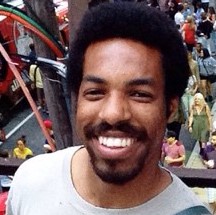What would you do if you knew you would not fail?
It is a stimulating question for conversation. In our modern world, more people have more time, money, and (relative) freedom than at any period in history. Yet the question of what we should actually do with it all can sometimes be mystifying. We think about what we would like to do, but must balance that against what we are able to do, what we are trained, educated, or gifted to do. Because, naturally, none of us want to fail at what we do.
But what if we knew we would not fail?
Want a career as a concert musician? Just start playing. In our make-believe scenario, you will attract the necessary attention to get concert hall bookings. How about a doctor? Just enroll in medical school. It is not that we already know everything. We still may need to learn a skill or a body of knowledge. The point is simply that we will not fail in doing so. Want to be an entrepreneur? A political leader? A professional athlete? Just take that first step. You will not fail.
It is a pleasant fantasy. It can also be a helpful exercise in thinking about career paths. But, of course, in reality, there are no guarantees of success in any endeavor. As Christians, we understand this to be largely a result of the Fall, the disobedience of our ancestors Adam and Eve that led God to curtail the fruitfulness of our labor (Genesis 3:17-19). But this same God has also given us a job at which we will not fail: prayer.
The idea that prayer is not just an option but an actual “job” for Christians is put clearly by the apostle Paul in 1st Thessalonians 5:16-18: “Rejoice always, pray without ceasing, give thanks in all circumstances; for this is the will of God in Christ Jesus for you.” And prayer is not just one of many parts of the Christian life. It is the central activity, the one that must accompany or underpin all our other activities. That is why we are to do it “without ceasing.” As the great Scottish teacher Oswald Chambers said, “Prayer does not fit us for the greater work; prayer is the greater work.”
Why is prayer central? Because in its essence, Christianity is a relationship. When we, as sinners, are saved by God’s grace through faith in the atoning work of Christ, we are not saved in a vacuum. We are saved out of our relationship of slavery to sin, and into a relationship of intimate love and forgiveness with God.
And a relationship, by definition, involves relating to someone. Christ declares that the greatest commandment is to relate to--specifically, to love--the Lord our God with all our heart, soul, mind, and strength (Mark 12:28-30). There is no more direct or accessible means of relating to God than prayer. Direct, because it goes straight from our heart to God’s ear, without the “middle-man” of priest, ritual, or good works. Accessible, because we can do it under any circumstances, even if our hands are tied, our mouths gagged, or our eyes blind.
And…it is a job at which we will not fail. Romans 8:26 states, “…the Spirit helps us in our weakness. We do not know what we ought to pray for, but the Spirit himself intercedes for us with groanings too deep for words.” Now, if anyone should know something about prayer, it is the apostle Paul. Yet here is Paul, the author of half the New Testament, declaring that we do not know how to pray properly. He does not even qualify it with a “when,” or an “if.” It is a blanket statement that in all times and places, we do not know how to pray properly. It almost seems like prayer is a job at which we will only fail! But, no, Paul goes on to say that the Holy Spirit intercedes for us when we pray, turning our ignorant, stumbling thoughts and words into praises, confessions, and petitions that please our heavenly Father (Rom. 8:27).
Let us be clear—it is not that the Spirit somehow persuades the Father to grant exactly what we ask. It is not that the Spirit is just better with words. Indeed, Paul writes that the Spirit does not even use words. The work of the Spirit is not to get our prayers answered just as they are, but to transform them into godly requests. The work of the Spirit is, as someone has said, to change our prayers into what we would ask of God if we had his perspective on our lives and the world.
Because of this tremendous blessing of the Spirit, when we pray as Christians, we know we will not fail. Our work is not to pray properly. That is the work of the Spirit on our behalf. Our work is simply to pray, rather than not pray, and to direct our prayer to the God of the Bible, rather than to anyone or anything else.
Here at FPC, you have the opportunity to pray for each other every week in your community group. If you need to get connected to a group, visit this page. You also have the opportunity to participate in kingdom-centered group prayer at “The Engine Room,” our monthly prayer meeting. Charles Spurgeon, the great 19th century British preacher, would regularly welcome visitors who were eager to learn the “secret” of his church’s “success.” He would lead them away from the Metropolitan Tabernacle’s impressive crowds and sanctuary and take them down to the basement of the church. There they would discover a group of people fervently praying on their knees. “Here is the powerhouse of the church,” Spurgeon would declare to his astonished guests. “If the engine room is out of action, then the whole mill will grind to a halt.”
To find the date of this month's Engine Room meeting, click here.



